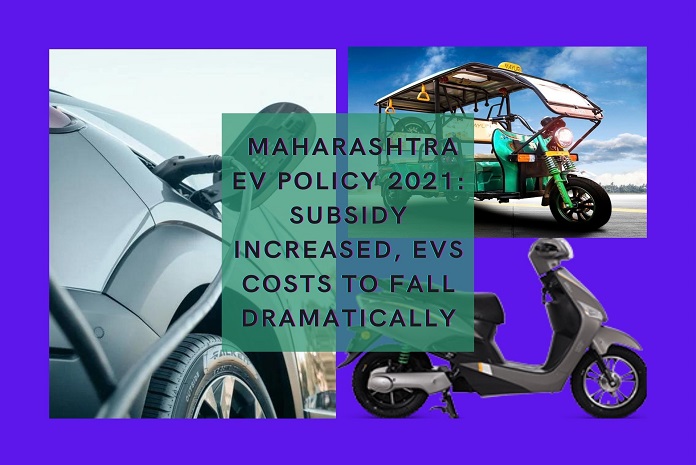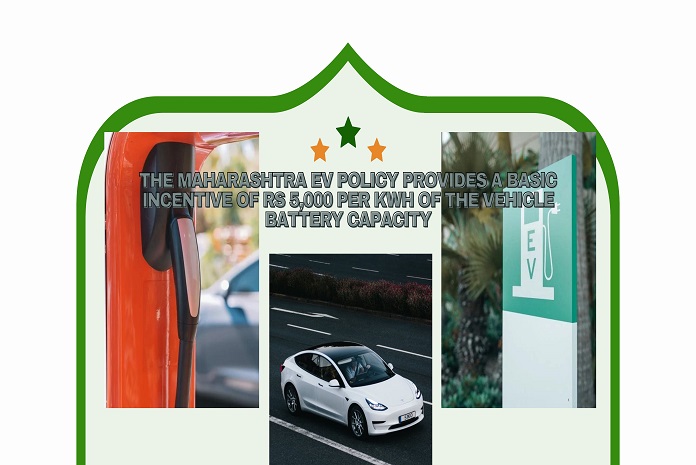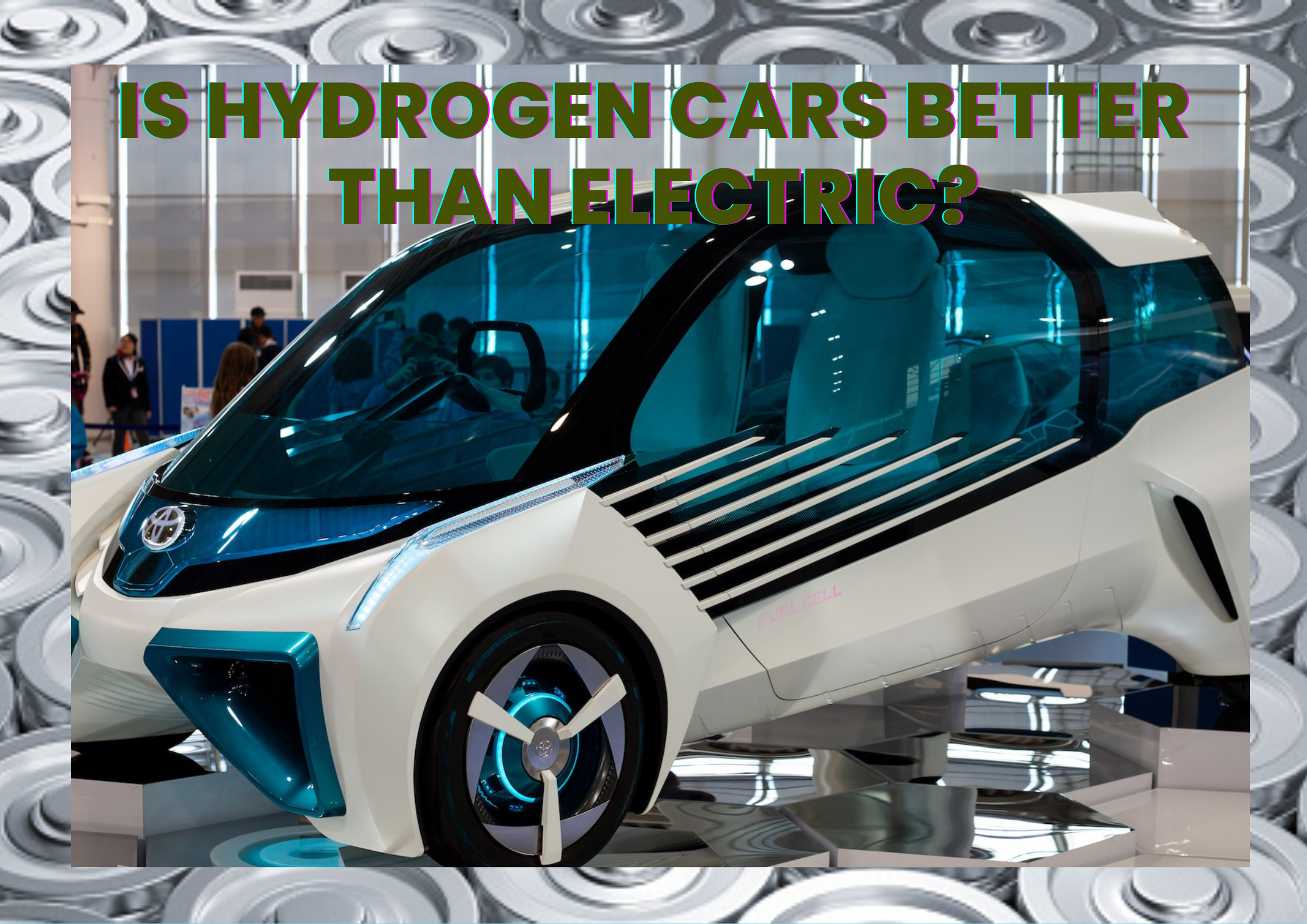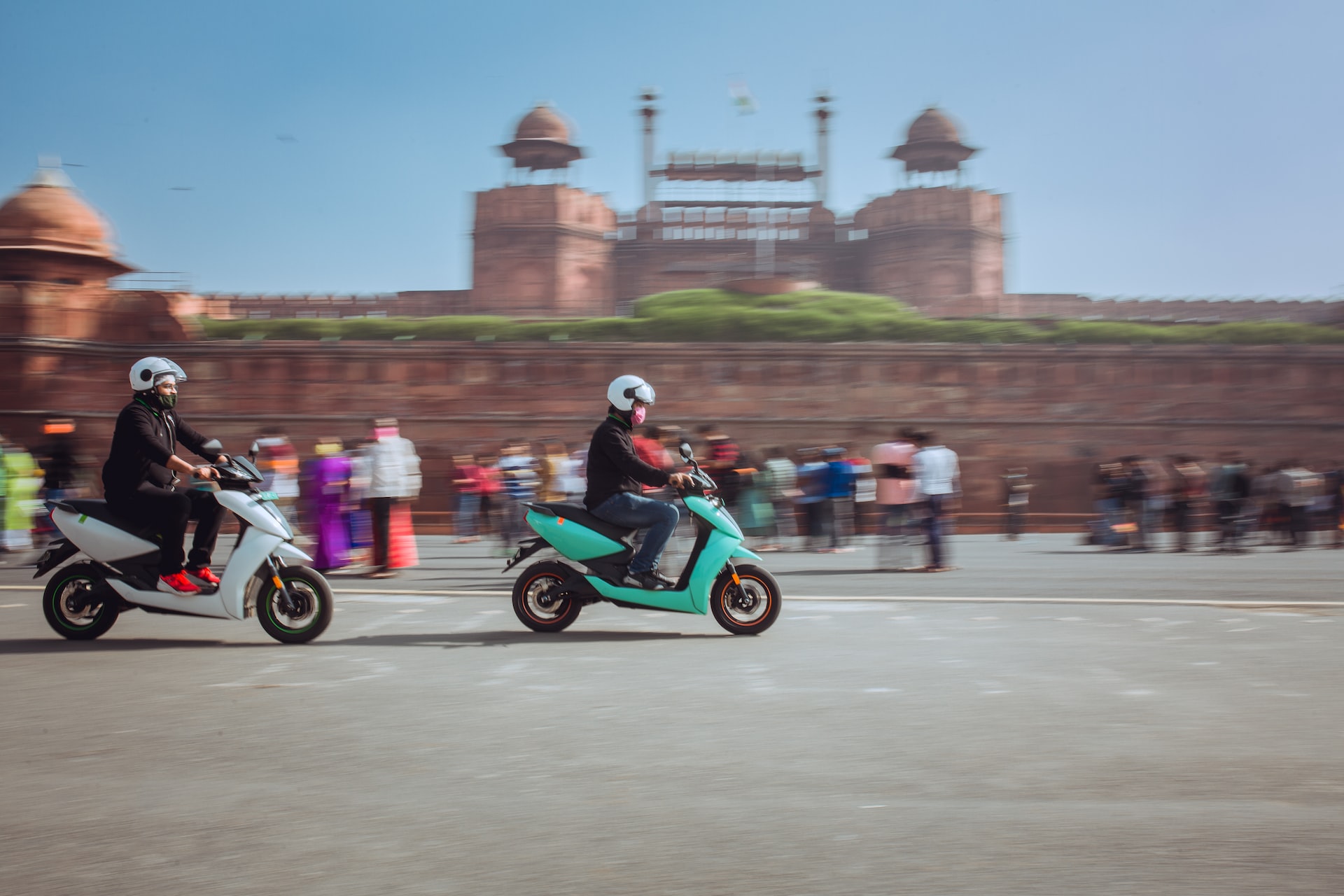Maharashtra has lofty plans to electrify automobiles in the state and has introduced the Maharashtra EV policy 2021, a revision of the policy that was first introduced in 2018. The state government has rolled out a Rs 930 crore policy that is valid until March 31, 2025, with the goal of making Maharashtra the “topmost producer of battery-powered electric vehicles in India” (based on annual production capacity) and aiming for electric vehicles (EVs) to make up 10% of all new vehicle registrations – around three lakh vehicles a year – in the state by 2025.
Maharashtra’s electric vehicle program for 2021 includes a subsidy for electric two-wheelers.
Electric two-wheelers receive the most benefits under the amended Maharashtra EV policy 2021, with the government expecting them to account for a significant 10% of all new vehicle registrations in the state by 2025.
The state would subsidise the first 100,000 buyers of electric two-wheelers with a Rs 5,000 incentive per kWh of battery capacity (incentive limit: Rs 10,000; twice the previous cap of Rs 5,000). While this is less than what Gujarat is offering, Maharashtra is offering an early bird bonus of up to Rs 15,000 (for an e-two-wheeler with a 3 kWh battery) to individuals who purchase before December 31, 2021. This means that customers will be entitled to a total bonus of Rs 25,000 this year if their chosen e-two-wheeler has a battery capacity of close to 3 kWh.
Those who purchase an electric two-wheeler in 2021 will benefit from the policy. For those who purchase the Ather 450 Plus electric scooter before the end of the calendar year, the present price of Rs 1.23 lakh will be reduced to roughly Rs 1.03 lakh. Similarly, for the duration of 2021, the Ather 450X, which is now priced at Rs 1.42 lakh, would be reduced to Rs 1.22 lakh. The price of the Revolt RV400 electric motorcycle, which is now priced at Rs 1.08 lakh, would be cut to roughly Rs 83,000. Their on-road prices would be quite close to their ex-showroom values if road tax and registration were abolished. A scrappage incentive of Rs 7,000 is also available.
To avoid purchasers the trouble communicating with government officials to collect their subsidy, all incentives will be sent directly to the producers of these vehicles. Additionally, e-two-wheeler producers would be eligible for a bonus of up to Rs 12,000 if they provide a minimum five-year battery guarantee and an assured buyback scheme. Only half of the full incentive will be available for e-two-wheelers sold without a battery.
Maharashtra’s electric vehicle strategy for 2021 includes a subsidy for electric cars and SUVs.
According to Maharashtra’s EV policy 2021, the base incentive for electric cars and SUVs is the same as for e-two-wheelers: Rs 5,000 per kWh of battery capacity. Vehicles with a battery capacity of up to 30 kWh, however, are eligible for the discount, which amounts to a total incentive of Rs 1.5 lakh (Rs 50,000 higher than the previous limit). That’s comparable to what Gujarat and Delhi have to offer, but the early bird discount sweetens the deal even more. An extra incentive of up to Rs 1 lakh is available to customers who purchase an electric car or SUV by December 31, 2021, bringing the total subsidy to Rs 2.50 lakh.

While it’s unclear whether there will be a definite cap on how much electric cars can cost, it’s unlikely that vehicles costing more than Rs 15 lakh will be eligible for the subsidies. However, EVs priced around Rs 15 lakh, such as the Tata Tigor EV Ziptron and two variants of the Tata Nexon EV, would experience significant price reductions.
The standard Tata Nexon EV XM version would be reduced in pricing from Rs 13.99 lakh to around Rs 11.49 lakh for the rest of 2021, a direct decrease of Rs 2.5 lakh.
However, after the early bird discount is no longer available, these costs would jump by Rs 1 lakh on January 1, 2022. There’s also a Rs 25,000 scrappage incentive, but there’s no incentive for manufacturers to provide guaranteed repurchase or battery warranties.
Under the updated policy, Maharashtra plans to subsidise 10,000 electric car and SUV customers, with the goal of electric cars accounting for 5% of new vehicle registrations in the state by 2025. To that purpose, starting in April 2022, all new cars introduced into the government fleet will be electric-only.
Maharashtra’s Electric Vehicle Policy for 2021: Infrastructure Incentives and Guidelines (Charging)
In the next four years, Maharashtra plans to build a comprehensive charging network across the state, with 2,500 charging stations planned in seven metropolitan agglomerations. There will be 1,500 of them in Greater Mumbai, 500 in Pune, 150 each in Nagpur and Nashik, 75 in Aurangabad, 30 in Amravati, and 20 in Solapur. Four main motorways will be served by these stations: Mumbai-Pune, Mumbai-Nashik, Mumbai-Nagpur, and Pune-Nashik.
Those who install the first 15,000 slow chargers would be eligible for a Rs 10,000 incentive per charger, while those who install the first 500 fast chargers will be eligible for a Rs 5 lakh subsidy per charger. Furthermore, the program stipulates that metropolitan local governments will be encouraged to offer property tax credits to homeowners who install private charging infrastructure on their land.
To encourage EV adoption, the government has mandated that all new construction projects include 20 percent dedicated, EV-ready parking spaces in residential units, 25 percent in institutional and commercial complexes, and 100 percent in government buildings.
Maharashtra EV policy 2021 latest news
Maharashtra’s electric car policy offers a base reward of Rs 5,000 per kWh of vehicle battery capacity, with a maximum incentive of Rs 1.50 lakh. The program also permitted EV purchasers to take advantage of early-bird benefits if they purchased a vehicle before December 31, 2021, which has subsequently been extended until March 31, 2022. This means that customers of qualifying Neon EV models will save Rs 2.5 lakh (Rs 1.5 lakh as a subsidy and Rs 1 lakh as an early bird incentive), bringing the vehicle’s price down by a significant amount. In addition, all Tigor EV models are eligible for the subsidy and are currently being sold with the additional early bird incentive.



